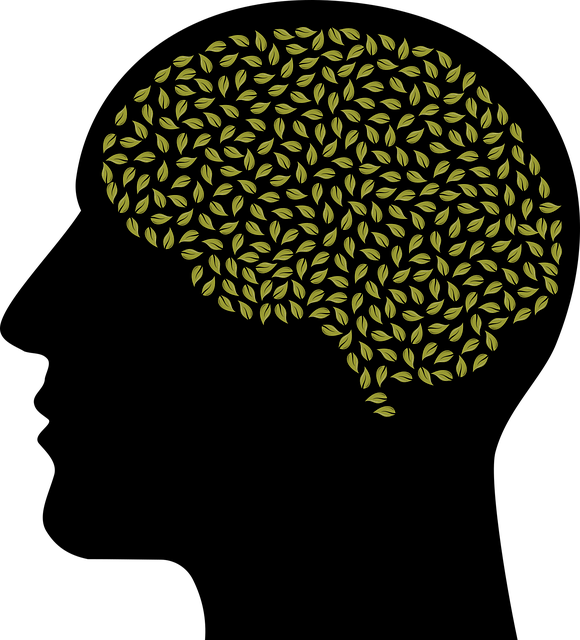Cultural sensitivity is critical in therapy for adults with ADD-ADHD evaluations, as it significantly impacts symptom manifestation and treatment outcomes. Therapists must be culturally competent, recognizing and respecting diverse backgrounds, beliefs, and values to create safe, supportive environments. This involves learning about specific community challenges, employing culturally adapted strategies, and fostering strong therapeutic alliances. Key techniques include conflict resolution, empathy building, specialized interventions, and continuous learning. Proper training in cultural competency ensures personalized care, enhances intervention efficacy, and improves outcomes for individuals seeking therapy for Adults ADD-ADHD Evaluations.
Cultural sensitivity is a cornerstone of modern mental healthcare, especially when treating diverse populations. This article delves into the critical aspect of cultural competency within clinical practices, focusing on its impact on therapy for adults with ADHD. We explore how cultural nuances influence treatment outcomes and present strategies to enhance sensitivity in sessions. Through case studies, we demonstrate successful interventions that prioritize understanding and respect for patients’ cultural backgrounds, offering valuable insights for evaluations and improved therapy for Adults with ADD-ADHD.
- Understanding Cultural Sensitivity in Mental Healthcare
- The Impact of Culture on Therapy for Adults with ADD-ADHD
- Evaluating Cultural Competency in Clinical Practice
- Strategies to Enhance Cultural Sensitivity in Therapy Sessions
- Case Studies: Successful Cultural Sensitive Interventions
Understanding Cultural Sensitivity in Mental Healthcare

Cultural sensitivity in mental healthcare involves recognizing and respecting the diverse cultural backgrounds, beliefs, and values of individuals seeking therapy. It requires therapists to adapt their practices to create a safe and supportive environment for all clients, regardless of their ethnic origin or cultural identity. In the context of therapy for adults with ADD-ADHD evaluations, understanding cultural nuances is especially crucial as these conditions can manifest differently across cultures. For example, certain cultural groups may have unique perspectives on attention, hyperactivity, and impulse control, which therapists must consider when interpreting symptoms and designing treatment plans.
Incorporating cultural sensitivity involves learning about different communities’ specific challenges and strengths, such as those related to migration, acculturation, or intergenerational trauma. Therapists can employ conflict resolution techniques, empathy building strategies, and culturally adapted interventions to address the unique needs of diverse clients. By doing so, they facilitate better emotional regulation, enhance therapeutic alliances, and promote positive outcomes for all individuals seeking mental healthcare services.
The Impact of Culture on Therapy for Adults with ADD-ADHD

Understanding cultural sensitivity is paramount when providing therapy for adults with Attention-Deficit/Hyperactivity Disorder (ADD-ADHD). Cultural backgrounds significantly shape individuals’ experiences and interactions with mental healthcare systems. For instance, a patient from a community emphasizing collective over individualistic values might approach therapy differently than someone from an individualistic culture. This cultural lens influences expectations regarding personal space, communication styles, and even the perception of what constitutes a “problem” warranting professional help.
Effective therapy for adults with ADD-ADHD necessitates healthcare provider cultural competency training to ensure evaluations are not only accurate but also respectful and inclusive. By incorporating awareness of diverse cultural norms into practice, mental health professionals can build stronger therapeutic alliances, fostering an environment where patients feel heard, understood, and empowered. This, in turn, enhances the efficacy of interventions, promotes better outcomes, and boosts confidence in managing symptoms related to ADD-ADHD. Moreover, organizations offering stress management workshops specifically tailored for cultural sensitivity contribute to equipping healthcare providers with tools to navigate these complexities effectively.
Evaluating Cultural Competency in Clinical Practice

Evaluating cultural competency is a vital aspect of mental healthcare practice, especially when catering to diverse patient populations. For professionals working with adults, including those undergoing therapy for ADD-ADHD evaluations, understanding and respecting cultural differences can significantly impact treatment outcomes. This involves recognizing that each individual brings their unique cultural background, beliefs, and values into the therapeutic relationship. By assessing a client’s cultural context, therapists can tailor their approach, ensuring that interventions are sensitive to these factors.
Incorporating cultural sensitivity requires ongoing self-reflection and learning for mental health professionals. Engaging in risk management planning can help identify potential cultural barriers and challenges. This might include exploring one’s own biases and educating oneself about various cultural practices and norms. Additionally, implementing Mental Wellness Journaling Exercises as part of the therapeutic process allows individuals to reflect on their cultural identity and share these insights with their therapists. Such exercises can foster open communication, promote self-awareness, and contribute to efforts aimed at reducing the stigma associated with mental illness across different cultures.
Strategies to Enhance Cultural Sensitivity in Therapy Sessions

To enhance cultural sensitivity in therapy sessions, therapists should dive into understanding their clients’ backgrounds and experiences. This involves actively listening to patients’ narratives, validating their cultural identities, and demonstrating genuine interest in their traditions and beliefs. Incorporating conflict resolution techniques that are respectful of diverse perspectives can help bridge any communication gaps. Therapists can also benefit from participating in Community Outreach Program Implementation to gain firsthand insights into the communities they serve.
Additionally, integrating cultural elements into therapy sessions, such as incorporating specific cultural practices or references relevant to the client’s background, can foster a sense of safety and trust. Regularly updating knowledge through Mental Wellness Podcast Series Production featuring diverse voices and perspectives is another effective strategy. By doing so, therapists ensure they remain informed about emerging cultural considerations in mental healthcare, ultimately providing more tailored and sensitive therapy for adults with ADD-ADHD evaluations.
Case Studies: Successful Cultural Sensitive Interventions

In the realm of mental healthcare, cultural sensitivity is a game-changer, especially when addressing conditions like Attention-Deficit/Hyperactivity Disorder (ADD-ADHD) in adults. Case studies illustrate successful interventions where healthcare providers tailored their approach to patients’ cultural backgrounds. For instance, consider an adult patient from a community with strong familial ties and traditional healing practices. By recognizing and respecting these cultural norms, the therapist created a safe space, fostering open communication. This allowed the patient to discuss symptoms related to emotional regulation, which is often challenging for individuals with ADD-ADHD.
The therapist utilized cultural competency training to employ techniques that promoted emotional well-being in a way that aligned with the patient’s framework. Through this culturally sensitive therapy, the individual received an accurate evaluation and effective treatment for their ADD-ADHD, demonstrating that understanding a patient’s cultural context can lead to more successful outcomes. Healthcare provider training in these areas is crucial, as it enables them to offer personalized care, ensuring every patient receives the support they need, regardless of cultural differences.
Cultural sensitivity is a cornerstone of effective mental healthcare, especially in treating conditions like ADD-ADHD. As demonstrated through case studies and evaluations, integrating cultural competency into therapy sessions improves outcomes for adults with these neurodiversity conditions. By employing strategies that foster understanding and respect for diverse backgrounds, therapists can create inclusive environments that enhance the therapeutic experience. This approach not only benefits individual clients but also promotes equitable access to quality mental healthcare services in a complex cultural landscape.














